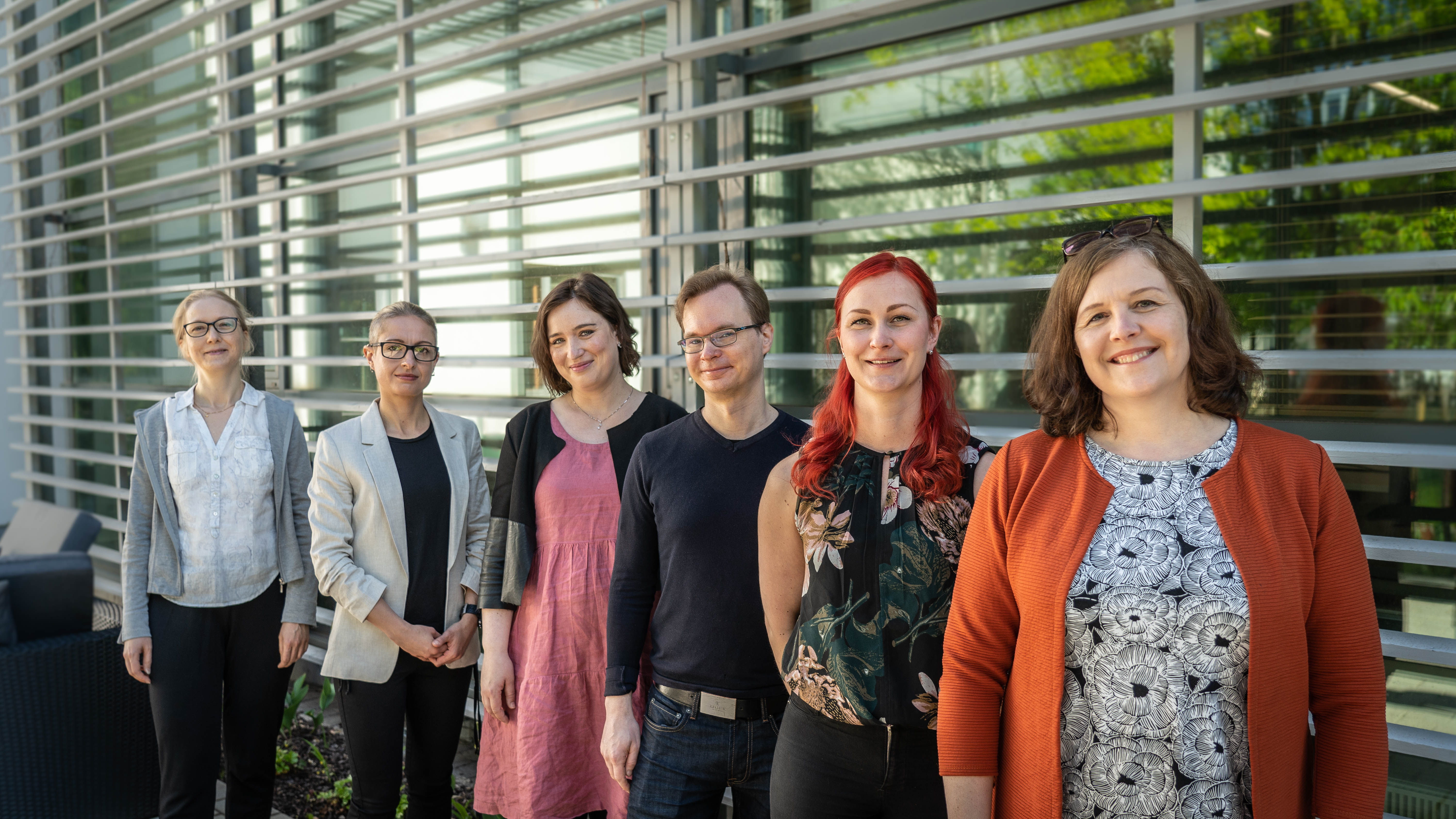Docent Päivi Saavalainen will lead a research group at FHRC focusing on gastroenterological inflammations and autoimmunity, using modern genetics, transcriptomics, immunorepertoire and single cell analysis methods.
Päivi Saavalainen (docent, PhD) is a cell biologist and geneticist by training. She has a MSc degree from University of Jyväskylä 1999 and PhD from University of Helsinki 2002. Saavalainens PhD was done for the Finnish Red Cross Blood Service, and was about celiac disease genetics under the supervision of Prof Jukka Partanen. In 2002-2004 she worked as a post-doc on T-cell immunology in asthma in the Swiss Institute of Allergy and Asthma Research, Davos, Switzerland. After her return she worked as post-doc in Prof. Juha Kere’s lab in University of Helsinki and soon in 2005 established her own research group at the Faculty of Medicine of the University of Helsinki. Saavalainen has worked as an EU Marie Curie Excellence Grant leader, Academy of Finland Post-doc and Research Fellow, and currently as university researcher funded by Sigrid Jusélius Senior Fellowship. She also enjoyed a Sigrid Jusélius funded sabbatical visit in Prof. Sten Linnarsson’s lab at Karolinska Institutet, learning single cell RNAseq methodologies.
– It is a great pleasure to join the Folkhälsan Research Center and continue academic research with other FHRC groups that focus on genetic diseases and have such strong synergies with us in multi-omics methodologies, says Saavalainen.

Right now, Saavalainen is leading the Immunomics research group of 2 post-docs, 5 PhD students and 1 bioanalyst, belonging to the Translational Immunology Research Program in Biomedicum. The main focus of the group is on gastroenterological inflammations and autoimmunity, using the modern genetics, transcriptomics, immunorepertoire and single cell analysis methods. The largest patient cohorts they have from celiac disease and inflammatory bowel disease, but they also actively apply their T-cell and B-cell receptor sequencing technologies also to narcolepsy, Covid-19, diabetes and cancer studies.
One of the most recent omics areas is the microbiome and mycobiome research from the fecal and biopsy samples in IBD where the microbes are known to have a role in disease risk. They studied the microbiomes in a patient cohort treated with TNFalpha blocker infliximab, and showed that the microbiome profile predicts the response to this drug already before the start of the treatment.
Saavalainen will move her group to FHRC progressively starting in August 2021 with a transition period to the end of 2022.
Let’s all wish Saavalainen and her research group warmly welcome to the Research Center!
Simon Granroth, Science Communicator
